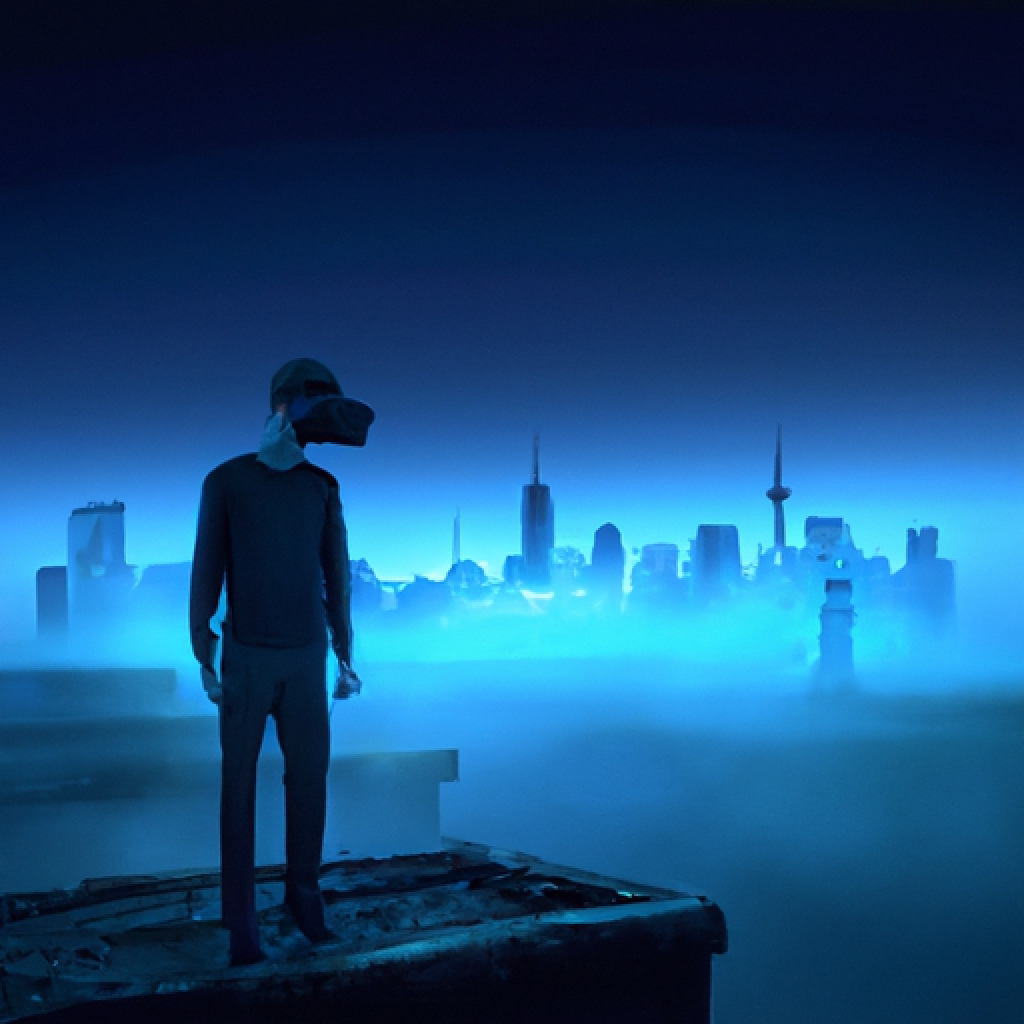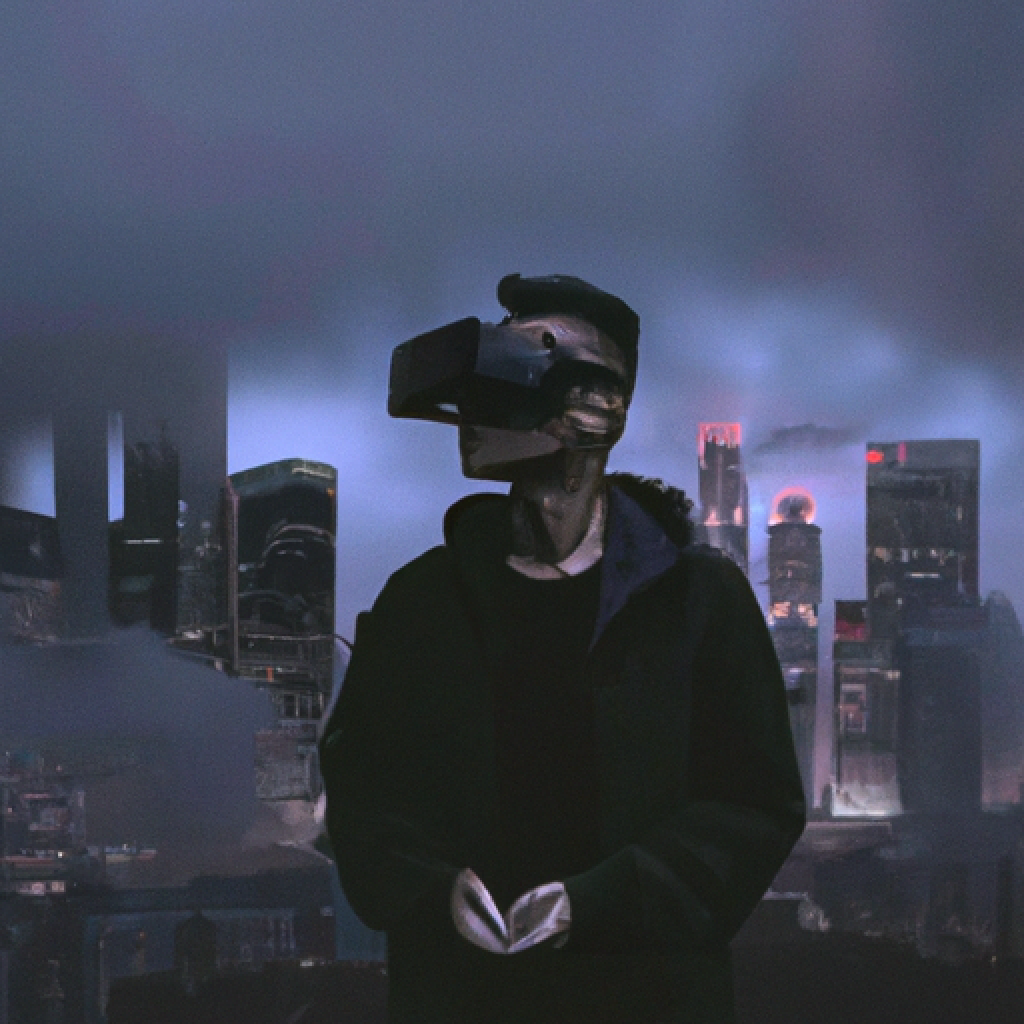Is Virtual Reality Bad For Mental Health?

I’ve always been fascinated by the possibilities of virtual reality, but lately, I’ve heard some concerns about its impact on mental health. The question lingers: is virtual reality bad for mental health? It’s an intriguing and important topic to explore, as the increasing popularity of VR raises questions about its potential drawbacks and effects on our psychological well-being. From addiction and desensitization to the blurring of realities, there’s a lot to consider in this ever-evolving technological landscape. So, let’s dig deeper and see what the research says about the potential risks and benefits of virtual reality on our mental health.

Understanding Virtual Reality
Definition of Virtual Reality
Virtual reality (VR) is an immersive technology that creates a simulated environment, allowing users to interact with and explore computer-generated worlds. Through the use of a headset, users can experience a sense of presence and feel as if they are physically present in the virtual environment. It involves the integration of visual, auditory, and sometimes haptic feedback to provide a realistic and engaging experience.
Types of Virtual Reality
There are different types of virtual reality experiences, each providing varying levels of immersion:
-
Non-Immersive VR: This type of VR experience does not fully immerse users in a virtual environment. It typically involves viewing virtual content on a computer screen or television with limited spatial presence, such as 360-degree videos or augmented reality (AR) apps.
-
Semi-Immersive VR: In this type of experience, users are partially immersed in a virtual environment. They may use devices like head-mounted displays (HMDs) or specialized controllers to interact with the virtual world.
-
Fully Immersive VR: Fully immersive VR provides the highest level of immersion, making users feel like they are completely transported into another reality. Users wear HMDs that track their head movements and often use hand controllers or other input devices to interact with the virtual environment.
Usage of Virtual Reality in Today’s Society
Virtual reality has steadily gained popularity across various industries and fields. It has found applications in entertainment, gaming, healthcare, education, architecture, and more. In entertainment and gaming, VR offers a more immersive and interactive experience, allowing users to feel like they are part of the game or movie. In healthcare, VR has been used for training medical professionals, pain management, and therapy. It also has the potential to revolutionize education by providing realistic simulations and hands-on learning experiences.
Virtual reality has the power to transport us to new worlds and expand our capabilities, but it is important to explore the connection between virtual reality and mental health to better understand its potential impacts.
Exploring the Connection Between Mental Health and Virtual Reality
Interactions between Virtual Reality and the Human Brain
As humans engage with virtual reality, the brain processes the virtual stimuli as if they were real. This can elicit emotional and physiological responses, just like experiences in the physical world. Virtual reality can activate the same neural pathways responsible for fear, reward, and memory, leading to an intricate connection between virtual experiences and mental health.
Current Research on Virtual Reality and Mental Health
Researchers are actively studying the effects of virtual reality on mental health. Studies have shown promising results in using VR as a tool for exposure therapy in treating phobias, post-traumatic stress disorder (PTSD), anxiety, and depression. The immersive nature of virtual reality allows individuals to face their fears in a controlled and safe environment, facilitating desensitization and gradual exposure to triggering situations.
Potential Implications of Virtual Reality on Mental Health
While virtual reality has shown promising therapeutic applications, it is essential to acknowledge the potential implications on mental health. Excessive exposure to virtual reality may lead to unhealthy dependencies and a distorted sense of reality. Additionally, the nature of virtual reality content, particularly in gaming, can induce fear and anxiety in users, impacting their overall well-being. It is crucial to strike a balance between the benefits and potential harms of virtual reality to ensure the safeguarding of mental health.
Virtual Reality as a Therapeutic Tool
Using VR for Phobia Treatment
Virtual reality has proven to be effective in treating various phobias, including fear of heights, spiders, and flying. By gradually exposing individuals to their feared stimuli in a virtual environment, therapists can guide them through the process of confronting and overcoming their fears. This exposure therapy allows for a safe and controlled environment, reducing the anxiety associated with real-life exposures. VR provides a unique opportunity to tailor treatment to specific phobias and individual needs.
Virtual Reality Exposure Therapy for PTSD
Post-traumatic stress disorder (PTSD) can profoundly impact individuals’ lives, causing distressing flashbacks and emotional disturbances. Virtual reality exposure therapy (VRET) is emerging as a promising treatment approach for PTSD. By recreating traumatic experiences in a controlled environment, VRET enables individuals to confront and process their traumatic memories. This form of therapy has shown positive outcomes in reducing PTSD symptoms, improving quality of life, and facilitating psychological healing.
Virtual Reality Therapy for Anxiety and Depression
Anxiety and depression are prevalent mental health conditions that can significantly impair individuals’ daily functioning. Virtual reality therapy is being explored as a complementary treatment option to traditional therapy for these conditions. By creating immersive and engaging environments, VR therapy aims to distract individuals from their negative thoughts, provide relaxation techniques, and foster a sense of empowerment and control. Early research suggests that VR therapy may effectively reduce anxiety and depressive symptoms, but further studies are needed to establish its long-term effectiveness.
Virtual Reality as a Source of Stress and Anxiety
Fear and Anxiety From Virtual Reality Content
While virtual reality can be used therapeutically, certain virtual experiences can induce fear and anxiety. Horror games and immersive simulations that evoke intense emotions may trigger psychological distress in sensitive individuals. It is important to recognize individual vulnerabilities and preferences when engaging with virtual reality content to minimize potential negative impacts on mental health.
Physical and Mental Strain From Extended Usage
Extended usage of virtual reality can lead to physical and mental strain. Wearing heavy and sometimes uncomfortable headsets for extended periods can cause neck and eye strain, leading to discomfort and potential long-term health issues. Additionally, the intense focus and concentration required during VR experiences can contribute to mental fatigue and cognitive overload, potentially exacerbating stress and anxiety.
Social Isolation from Excessive Virtual Reality Usage
While virtual reality has the capability to connect people from various locations, excessive usage can result in social isolation. Spending prolonged periods in virtual environments may lead to decreased social interactions in the physical world, hindering the development of real-life social skills and potentially contributing to feelings of loneliness and isolation. It is crucial to have a balanced approach to virtual reality usage, ensuring that it complements, rather than replaces, real-world social connections.

Impact of Virtual Reality on Perception and Reality Distortion
The Dangers of Blurring the Line Between Virtual and Real World
Virtual reality’s immersive nature blurs the line between the virtual and the real world, creating potential dangers. Spending excessive time in virtual environments may lead to difficulties differentiating between virtual experiences and reality, impacting one’s sense of identity and perception. It is essential to maintain a clear distinction between the virtual and physical world to avoid potential psychological and emotional disturbances.
Impact on Memory
Virtual reality experiences can influence memory formation and recall. Studies have suggested that virtual reality may impair memory consolidation, possibly due to the brain segregating virtual experiences as separate from real-life events. Conversely, virtual reality has also shown potential in enhancing memory retrieval and spatial navigation abilities, particularly in educational and training settings. Understanding the intricacies of memory formation and virtual reality’s impact can help tailor VR experiences to optimize learning and cognitive functioning.
Escapism and Dependency on Virtual Reality
Virtual reality’s immersive nature can be an appealing escape from reality, which may lead to excessive usage and dependency. Individuals seeking solace or distraction from real-life stressors may turn to virtual reality as a coping mechanism. However, relying heavily on virtual environments to avoid or numb real-life experiences can hinder personal growth and resilience. It is important to use virtual reality mindfully and maintain a healthy balance between virtual escapism and engagement with the physical world.
Negative Impact of Virtual Reality on Physical Health Impacting Mental Health
Side Effects of Prolonged Use such as VR Sickness, Eyestrain
Prolonged usage of virtual reality can lead to physical health issues that indirectly impact mental health. Some individuals may experience symptoms of “VR sickness,” which include nausea, dizziness, and disorientation. Additionally, extended exposure to virtual environments can strain the eyes, leading to eye fatigue, dryness, and potential long-term vision problems. These physical side effects can contribute to mental discomfort and hinder overall well-being.
Sleeping Disorders from Excessive VR Use
Excessive usage of virtual reality, particularly close to bedtime, can disrupt sleep patterns and contribute to sleeping disorders. The blue light emitted by VR devices can interfere with the production of melatonin, a hormone necessary for regulating sleep. Additionally, engaging with stimulating and intense virtual experiences before sleep may lead to heightened arousal levels, making it difficult for individuals to relax and fall asleep. Proper sleep hygiene and mindful VR usage can help mitigate these potential sleep-related issues.
Reduced Physical Activity and its Mental Health Implications
Virtual reality, particularly in sedentary experiences, may result in reduced physical activity, potentially impacting mental health. Spending excessive time engaged in virtual environments may lead to a more sedentary lifestyle, reducing opportunities for exercise and movement. Regular physical activity has been shown to have positive effects on mental health, such as reducing depression, anxiety, and stress. It is important to balance virtual reality engagement with physical activity to maintain overall well-being.

The Reality of Virtual Reality Addiction
Understanding Virtual Reality Addiction
Virtual reality addiction refers to compulsive and excessive usage of virtual reality, leading to detrimental effects on an individual’s physical, psychological, and social well-being. Similar to other forms of addiction, virtual reality addiction involves the loss of control over usage, withdrawal symptoms when not engaged in VR, and negative consequences on various life domains. While still an emerging concept, studies suggest that a small percentage of VR users may be vulnerable to developing addictive behaviors associated with virtual reality.
Connection Between Virtual Reality and Gaming Addiction
Virtual reality and gaming addiction can intersect, as many VR experiences revolve around gaming. The immersive and engaging nature of virtual reality can intensify the addictive characteristics found in video games. Gaming addiction can negatively impact mental health, leading to social isolation, decreased academic or occupational performance, and neglect of real-life responsibilities. As virtual reality continues to evolve, it is important to monitor and address potential gaming addiction concerns within the VR space.
Mental Health Concerns Around Virtual Reality Addiction
Virtual reality addiction can have significant mental health implications. Excessive usage of VR may contribute to increased isolation, anxiety, depression, and decreased well-being. Addiction to virtual reality may also lead to neglect of real-life relationships and responsibilities, further exacerbating mental health issues. Recognizing the signs of addiction and seeking professional help is essential in addressing and managing these concerns.
Can Virtual Reality Cause or Exacerbate Mental Illness?
Risk of Aggravating Pre-existing Mental Health Conditions
While virtual reality has shown potential therapeutic benefits, it also poses risks for those with pre-existing mental health conditions. Individuals with anxiety disorders, PTSD, or psychosis may be more susceptible to experiencing distress or symptom exacerbation when exposed to intense or triggering virtual reality content. It is crucial to carefully consider individual vulnerabilities and seek professional guidance when incorporating virtual reality into mental health treatment.
Potential of Inducing Psychotic Symptoms and Disorders
There is emerging evidence suggesting that virtual reality may have the potential to induce psychotic symptoms or disorders, particularly in vulnerable individuals. The immersive and realistic nature of virtual reality experiences can temporarily blur the lines between the virtual and real world, leading to perceptual distortions and intrusive thoughts. However, further research is needed to fully understand the specific mechanisms and risk factors involved in the induction of psychotic symptoms through virtual reality.
Lack of Regulatory Measures and Its Effects
Virtual reality technology is advancing at a rapid pace, yet regulatory measures lag behind. The lack of standardized guidelines and oversight in the virtual reality industry raises concerns for mental health. Without clear regulations, inappropriate or harmful content may be available to users, increasing the risk of negative emotional and psychological effects. It is imperative for the industry to prioritize user safety, ethical considerations, and mental well-being when developing and distributing virtual reality experiences.

Safeguarding Mental Health in the Virtual Reality Space
Setting Healthy Boundaries for VR Use
Setting healthy boundaries for virtual reality use is essential in safeguarding mental health. Establishing limits on the duration and frequency of VR sessions can help prevent excessive usage and mitigate potential negative effects. It is important to balance virtual reality engagement with daily responsibilities, social interactions, physical activity, and downtime.
Signs of Unhealthy VR Usage
Recognizing signs of unhealthy virtual reality usage can help identify potential mental health concerns. Excessive preoccupation with VR, neglecting personal hygiene or responsibilities, withdrawing from real-life relationships, or experiencing negative emotions when not engaged in VR may indicate problematic usage. Individuals experiencing these signs should evaluate their VR habits and consider seeking professional help if needed.
Mental Health Support and Resources for VR Users
People using virtual reality should have access to mental health support and resources. Virtual reality developers, providers, and communities can play a crucial role in creating platforms that prioritize mental well-being. Implementing safeguards, providing educational materials on healthy VR usage, and offering resources for mental health support can contribute to a safer and more responsible virtual reality space.
Looking Forward: Virtual Reality and Mental Health
Potential Positive Impacts on Mental Health
While acknowledging the potential risks and challenges associated with virtual reality, it is crucial to recognize its potential positive impacts on mental health. Virtual reality holds promise as a therapeutic tool for various mental health conditions, offering personalized and immersive interventions. The ability to create realistic and controlled environments, enhance relaxation techniques, and provide engaging distractions could revolutionize mental health treatment.
Need for Further Research into the Impact of VR on Mental Health
To fully understand the complexities of the relationship between virtual reality and mental health, further research is necessary. Long-term studies examining the impact of virtual reality on diverse populations, including individuals with different mental health conditions and vulnerabilities, can provide valuable insights into the therapeutic potential and risks associated with VR. Rigorous scientific investigation can guide the development of evidence-based guidelines for safe and effective virtual reality usage.
Balancing the Benefits and Potential Harms of VR
As virtual reality continues to evolve and become more accessible, a balanced approach to its usage is essential. Recognizing the potential benefits and risks, individuals should make informed decisions about their virtual reality engagement. Combining responsible usage, mindfulness, and awareness of personal mental health needs can help harness the positive potential of virtual reality while safeguarding mental well-being. By striving to strike this balance, we can fully explore the future possibilities of virtual reality while protecting mental health in the process.
In conclusion, virtual reality holds promise as a therapeutic tool and has the potential to revolutionize various industries. However, it is essential to understand the connection between virtual reality and mental health. By acknowledging the diverse impacts that virtual reality can have on mental well-being, we can better navigate its usage, promote responsible practices, and prioritize mental health in the virtual reality space.








